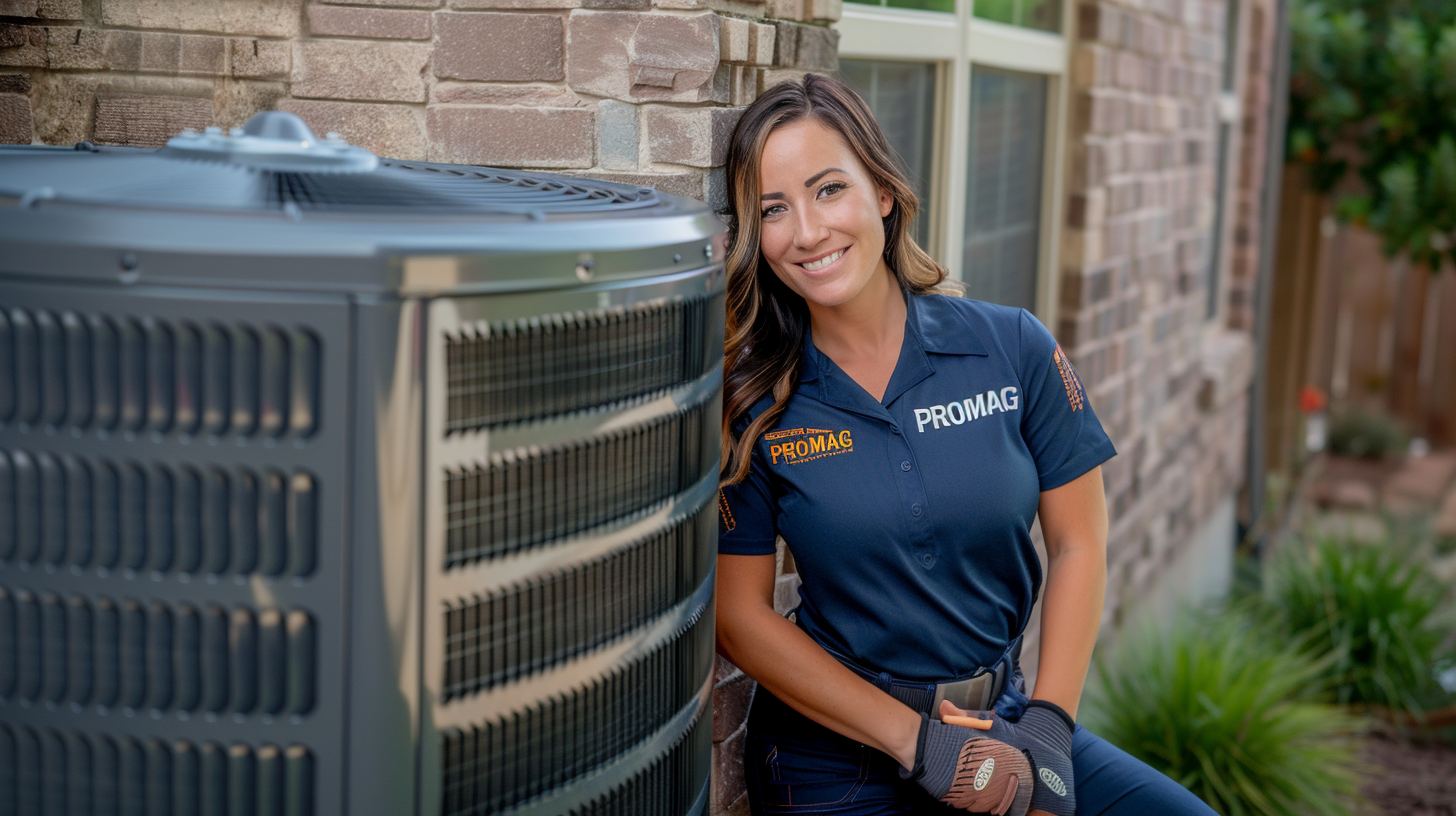Energy-Efficient A/c Solutions to Reduce Utility Expenses
As power costs remain to rise, the significance of energy-efficient HVAC systems ends up being significantly evident. These systems not only promise considerable financial savings on utility expenses however likewise add to an extra sustainable future by minimizing power usage. With different choices available, consisting of geothermal heatpump and ductless mini-splits, residential property owners deal with a wide range of choices that can improve comfort and air top quality. Nonetheless, understanding the vital functions and upkeep demands is vital to taking full advantage of these advantages. What factors should be focused on when choosing the ideal system for your requirements?
Benefits of Energy-Efficient Cooling And Heating Systems
Energy-efficient A/c systems provide various benefits that extend past mere expense savings. By taking in much less power, these systems add to reduce greenhouse gas discharges, aiding to deal with climate adjustment and advertise sustainability.
Additionally, energy-efficient cooling and heating systems frequently provide enhanced convenience degrees. A number of these systems feature advanced innovation that allows for far better temperature level control and enhanced air top quality (DMAKS HVAC). This leads to a much healthier indoor setting, which is specifically vital for individuals with allergies or breathing concerns
In addition, spending in energy-efficient HVAC systems can enhance residential or commercial property value. As even more customers focus on power effectiveness, homes and structures geared up with these systems may draw in greater quotes in the actual estate market.
Types of Energy-Efficient Heating And Cooling Options
Just how can homeowners and organizations select the most ideal energy-efficient HVAC options for their demands? The marketplace offers a variety of energy-efficient a/c systems, each developed to boost convenience while lessening energy intake.
One alternative is the variable refrigerant circulation (VRF) system, which efficiently regulates the temperature level in numerous areas within a building. This system adapts its refrigerant circulation to match the wanted temperature, causing significant power financial savings.
An additional prominent selection is geothermal heat pumps, which use the earth's secure temperature level to heat and awesome spaces. By moving heat to and from the ground, these systems show impressive efficiency, particularly in modest environments.
Furthermore, ductless mini-split systems offer an energy-efficient option for homes lacking ductwork. These systems enable zone-specific cooling and heating, reducing energy waste in vacant locations.
Finally, high-efficiency furnaces and air conditioning system, with advanced SEER and AFUE scores, use reputable climate control while consuming less energy than conventional versions. By examining these options, homeowners and companies can pick a cooling and heating system customized to their particular requirements and power effectiveness goals.
Trick Attributes to Take Into Consideration

Following, investigate the kind of compressor made use of in the system. DMAKS HVAC. Variable-speed compressors can readjust their output to match the home heating or cooling down need, resulting in improved comfort and energy savings compared to single-speed designs. Additionally, look for systems geared up with smart thermostats that offer programmable settings and remote accessibility, enabling better control over power intake
Another essential attribute is the system's air purification capacity. High-efficiency filters can enhance indoor air high quality and lower power intake by ensuring the system operates effectively. Furthermore, take into consideration the kind of cooling click for more info agent made use of; modern-day systems typically employ environment-friendly cooling agents that have a lower environmental influence.
Finally, make certain that the system is suitable with zoning technology, which permits personalized temperature control in various locations have a peek at this website of your home, boosting convenience while minimizing power use.
Tips for Choosing the Right System


Following, think about energy efficiency rankings, specifically the Seasonal Power Effectiveness Proportion (SEER) for cooling down systems and the Yearly Fuel Usage Performance (AFUE) for heating systems. Greater scores suggest higher performance, which can result in considerable savings on utility bills over time.
Furthermore, review the kind of a/c system that best fits your way of living and spending plan. Options consist of air conditioning, ductless mini-splits, and heatpump, each with its very own collection of advantages and drawbacks.
Do not overlook the importance of appropriate setup and sizing; an incorrectly sized system can result in inefficiencies and enhanced wear. Consult with an expert Cooling and heating contractor to obtain expert referrals customized to your home's special demands. This detailed method will make certain that you pick an energy-efficient heating and cooling system that meets your needs and budget plan efficiently.
Maintenance for Optimal Performance
When the right heating and cooling system remains in place, continuous upkeep becomes essential to guaranteeing optimum effectiveness and long life. A properly maintained browse this site system operates better, resulting in lower energy consumption and decreased energy costs. Routine evaluations and tune-ups must be set up at least twice a year-- as soon as before the air conditioning period and as soon as prior to the home heating period.

House owners must likewise be attentive about checking their HVAC system's performance. Unusual sounds, changing temperatures, or raised energy costs can show underlying problems that need instant interest. By resolving these problems without delay, house owners can avoid costly fixings and extend the life expectancy of their systems.
Spending in a maintenance strategy with a qualified technician not just improves efficiency yet also offers peace of mind, knowing that the system is operating at its best. DMAKS HVAC. Normal maintenance is for that reason essential for maintaining energy performance and lowering general functional expenses
Conclusion
Finally, energy-efficient heating and cooling systems present a feasible remedy for lowering utility bills while enhancing convenience and air quality. By integrating innovative innovations and choices such as geothermal heatpump and ductless mini-splits, homeowner can accomplish significant energy financial savings and add to ecological sustainability. Cautious factor to consider of system functions and recurring maintenance additionally guarantees ideal efficiency, making energy-efficient systems a sensible investment for both financial and eco-friendly advantages.